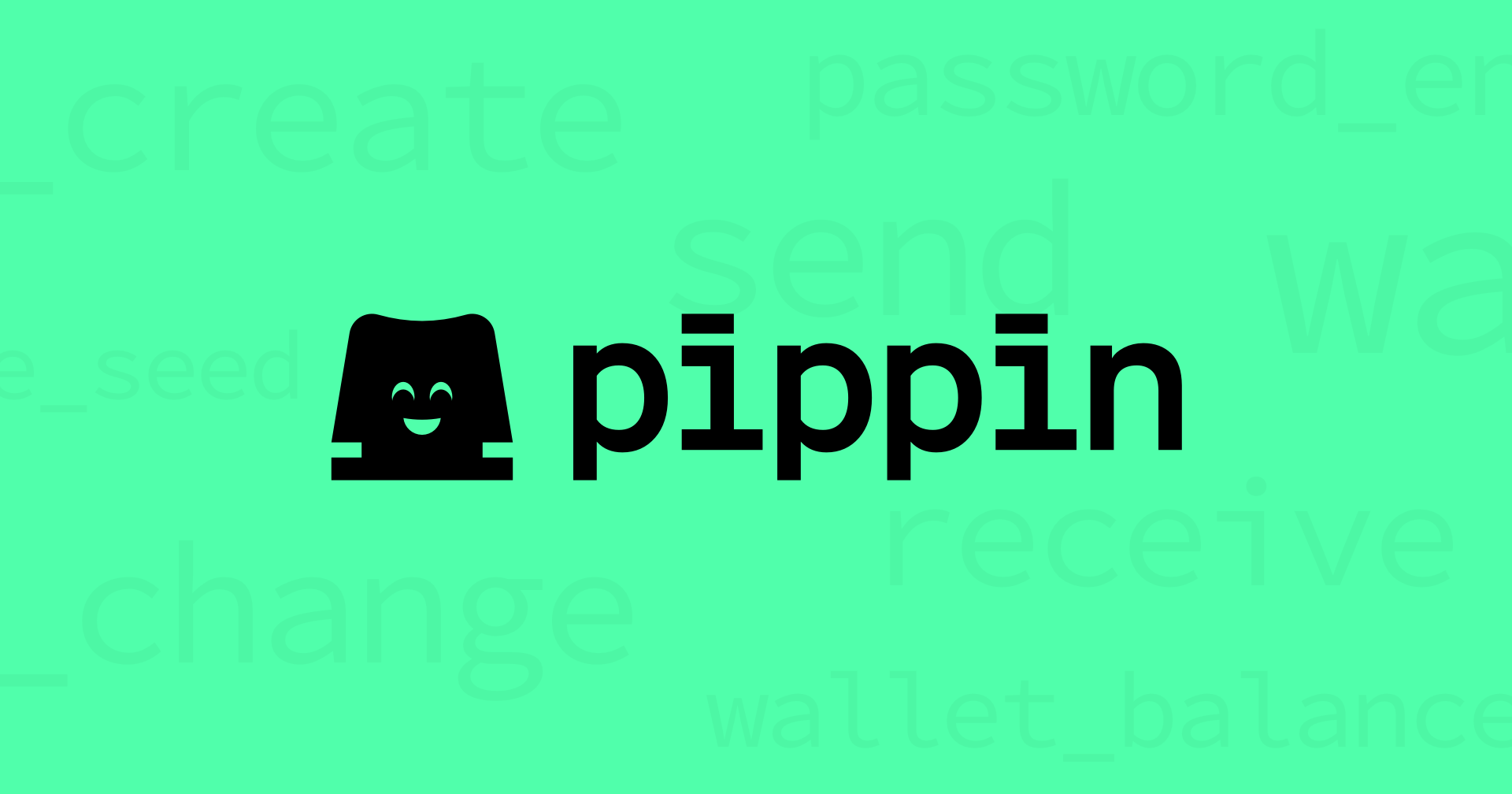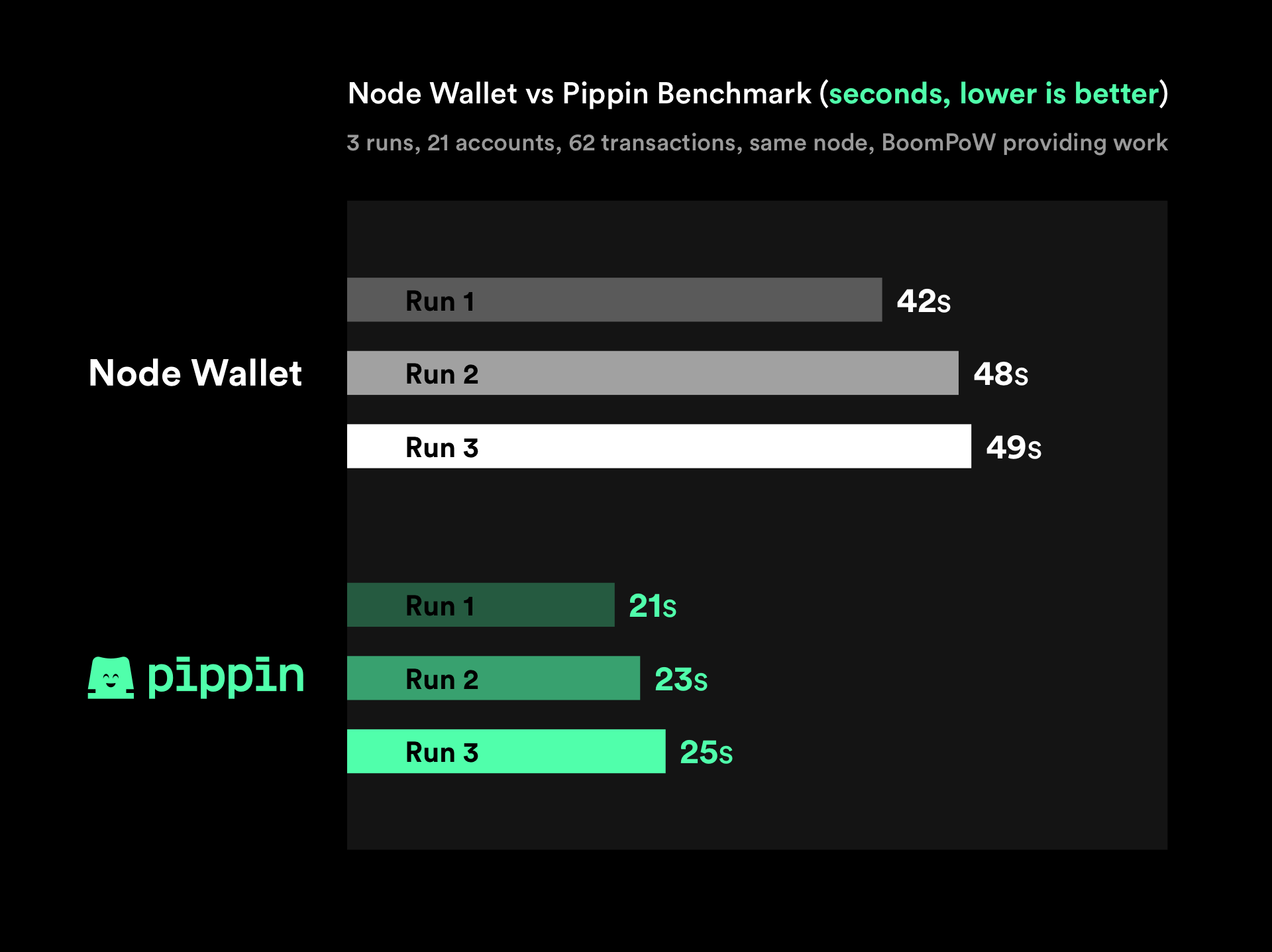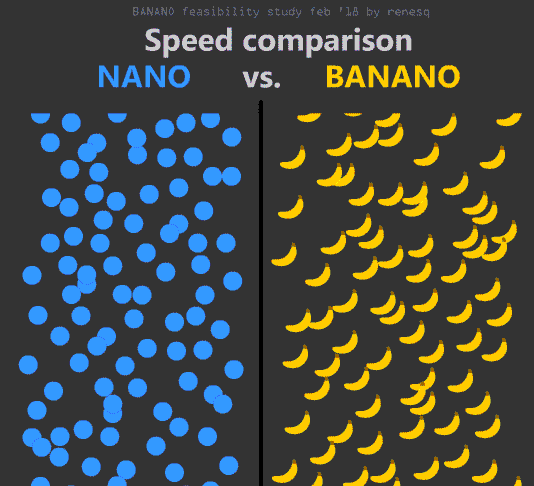Introducing Pippin — High Performance, Production-ready Developer Wallet for Banano and Nano!
Dec 15, 2019 • 5 min read
As previously announced by Appditto here, we now have Pippin — a new developer wallet that gives you external key management and incredibly high performance right out of the box, making integrations and development in the BANANO (and Nano) ecosphere much easier!

Imagine you want to integrate BANANO — the fee-less, instant, rich in potassium cryptocurrency — into your application, or Nano — BANANO’s bigger brother. Whether it’s an exchange, casino, faucet, game, store, or vending machine — one of the first things you’ll need to do is figure out how to interface with a wallet.
Sounds intimidating, right? Luckily if you peruse the Nano Documentation you’ll quickly find out that Nano has a developer wallet built-in, right into the node! It has a full set of APIs that lets you create accounts, send Nano, receive Nano, etc.
But then when you read a little more about it and see that the developer wallet isn’t recommended for production integrations, it’s tightly coupled to a node, and what if you have disk space or bandwidth constraints? Running a full node probably isn’t something that you want to do. The answer to these problems is external key management .
But what does that mean? Well, it basically means writing your own wallet, manually crafting and signing blocks, and using any node(s) to publish the block. All while taking proper precautions along the way to make sure blocks are confirmed and avoiding duplicate transactions. Today we’re announcing Pippin — a new developer wallet that gives you external key management and incredibly high performance right out of the box…
What is “Pippin” Anyway?
To put it simply, Pippin is a BANANO (and Nano) wallet for developers. Pippin is the first wallet of its kind that is 100% compatible with the developer wallet (aka “node wallet”) APIs. Of course the node wallet isn’t recommended for a lot of use cases, but a lot of developers use it anyway — because as you might expect, it’s the easiest solution and it generally works well enough. One of the goals of Pippin is to provide a production-ready, external key management solution that’s incredibly easy to setup and maintain.
Pippin has numerous advantages:
- It’s a drop-in replacement for the node/developer wallet
- It has native support for DPoW and BPoW
- It’s completely detached from the node — meaning, you can use Pippin with any public node (no need to run your own node, you could also run a node in 1 location and have pippin on any number of machines using the same node)
- It’s compatible with multiple database backends (SQLite, MySQL, PostgreSQL)
- It can lazily auto-receive transactions (for example if you don’t want to compute PoW every time your account receives some coins but you also don’t want to explicitly receive them, Pippin can just receive blocks on demand when you need to perform a send — this also works well for when your wallet is locked and cannot auto-receive)
- It supports encrypting seeds and private keys
- Is fully asynchronous and easily scalable thanks to per-account, thread-safe distributed locks.
It’s Also Very, Very Fast

A benchmark was constructed that:
- Created a new wallet with 21 accounts, and opened one of the accounts with some coins. (1 block)
- Create 20 transactions to 20 different accounts from the first account. (20 blocks)
- Receive all 20 transactions across the 20 different accounts (20 blocks)
- Send all of the coins back to the original account in 20 more transactions (20 blocks)
- Return coins to sender (1 block)
The same node was used for both Pippin and the node wallet, the same PoW provider was used, and the exact same amount of transactions were made in the exact same way.
This was repeated 3 times for each wallet. Pippin was consistently at least twice as fast as the node wallet!

The Technology Behind Pippin
Pippin is written in Python, it is able to perform incredibly fast by using libraries such as asyncio, uvloop, asyncpg/aiosqlite/aiomysql, rapidjson, and others.
It uses the brilliant nanopy library for signing blocks and generating work, which itself uses C-bindings for ed25519 and blake2b (in the most basic terms, this means that it’s fast).
…but how is it so fast? Pippin uses a brilliant per-account distributed locking mechanism that’s backed by Redis. This means that every account can operate completely independent of one another, while still operating in a synchronous fashion on its own chain. So if you push 500 transactions that belong to account #1, then push a transaction that belongs to account #2 — the account #2 transaction will get processed immediately, even though account #1 has 500 pending requests to handle. This mechanism allows for extremely high concurrency and scalability as you increase the number of accounts, it even is safe across multiple processes.
Additionally, pippin uses a process pool that’s configurable for local work generation, although GPU PoW isn’t natively supported, you can use external work peers, run your own nano-work-server instance, or use a service like BoomPoW.
Start Using Pippin
Pippin is available on PyPi and requires Python 3.6 or newer.
Simply install it with pip% pip3 install pippin-wallet
Then run the server with the command pippin-server
More comprehensive instructions are outlined in the Pippin README.
Disclaimer
This article was slightly modified based on the original Appditto announcement (source). Re-use of text passages with permission from Appditto.
Appditto Website: appditto.com. Twitter: @appditto. Github: @appditto
What the Fork is BANANO?
For those of you who don’t know BANANO yet, it’s obviously perfect to just read our brand-new animated, meme-rich and interactive Yellowpaper!
BANANO is a cryptocurrency (forked from NANO in April 2018) powered by DAG technology — here to distrupt the meme economy. Yes, BANANO has memes! And also feeless and near-instant transactions, a highly active community, and active technical development! The BANANO community doesn’t take themselves too seriously, but we’re here for the long run and we enjoy what we do. A concise explanation can also be found here at Bitcointalk, or on our official website, and you’ll find help getting started at banano.how.
See current BANANO price and market data at Coingecko. All current trading pairs and exchanges here.
On top of this, BANANO is super easy to use and puts an emphasis on free and fair distribution and crypto education. Just try our slick mobile wallet called Kalium and get your first free $BANANO from one of our faucets within minutes!

Join the Banano Republic!
BANANO ($BAN) is a fee-less, instant, rich in potassium cryptocurrency powered by DAG technology disrupting the meme economy.
Official Website: banano.cc
Yellowpaper: https://banano.cc/yellowpaper/
Help getting started: banano.how
Join our social channels for updates & giveaways:
Discord | Reddit |Telegram
Medium | Steemit | Publish0x
Twitter | Instagram | Facebook
Youtube | Github | BitcoinTalk
Overviews:
BANANO News | BANANO links | BANANO events


